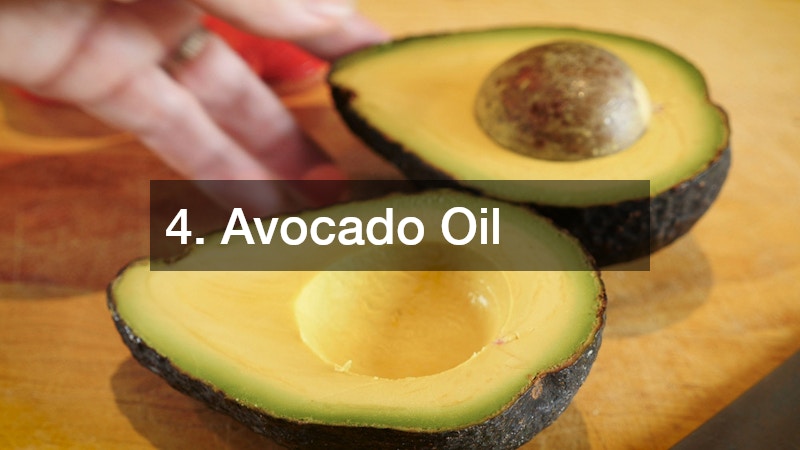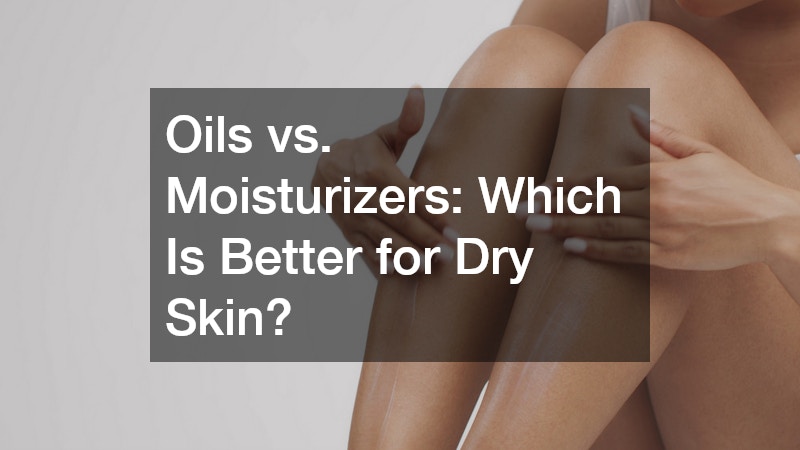Dry, flaky, or itchy skin is more than just uncomfortable—it can also affect your confidence and quality of life. Thankfully, nature offers a rich variety of nourishing oils that can help restore hydration and elasticity without harsh chemicals. Whether you’re dealing with chronic dryness, seasonal skin issues, or simply want to keep your skin soft and supple, using natural oils can make a noticeable difference.
This in-depth guide explores the best oils for dry skin, explaining how they work, who they’re best for, and how to use them for maximum results. We’ll also include expert tips, DIY application ideas, and considerations for choosing the right oil for your unique skin needs.
Why Natural Oils Work Wonders for Dry Skin
Natural oils are rich in fatty acids, antioxidants, and vitamins that mimic the skin’s natural lipids, helping to seal in moisture and repair the skin barrier. Unlike synthetic lotions or creams, many plant-based oils are free of preservatives, parabens, or artificial fragrances, making them a gentle yet powerful solution for dry and sensitive skin types.
In addition, natural oils penetrate deeply into the skin, reducing water loss and replenishing nutrients. They also offer anti-inflammatory and antibacterial properties that can help soothe irritation, reduce redness, and support healing, making them ideal for people with eczema, psoriasis, or environmentally stressed skin.
What to Look for in the Best Oil for Dry Skin
Before you pick an oil off the shelf, it’s important to understand what makes some oils better than others for hydrating dry skin. Look for the following:
- High oleic acid content – Oleic acid-rich oils (like olive and avocado) are thicker and great for extremely dry or mature skin.
- Linoleic acid – These are lighter oils (like rosehip and grapeseed) that absorb quickly and are great for acne-prone dry skin.
- Vitamin E – This antioxidant helps protect the skin barrier and promotes healing.
- Cold-pressed and unrefined – These oils retain more of their natural nutrients and purity.
- Non-comedogenic rating – If you have sensitive or acne-prone skin, choose oils that won’t clog pores (e.g., argan, jojoba).
Best Oils for Dry Skin That Actually Work
1. Coconut Oil
Rich in saturated fats, coconut oil is one of the most popular and affordable oils for dry skin.
Benefits:
- Locks in moisture effectively
- Antibacterial and antifungal
- Smooths rough patches and heals cracks
How to use:
Apply directly after a shower to damp skin. Avoid using it on the face if you’re acne-prone, as it may clog pores.
2. Argan Oil
Argan oil, often called “liquid gold,” is rich in vitamin E and essential fatty acids, making it an ideal all-purpose moisturizer.
Benefits:
- Lightweight and non-greasy
- Suitable for face and body
- Helps restore elasticity and smoothness
How to use:
Use 2–3 drops on your face or add to your moisturizer. Great for overnight use.
3. Jojoba Oil
Jojoba oil closely resembles human sebum, which makes it excellent for balancing dry skin without causing breakouts.
Benefits:
- Non-comedogenic
- Contains anti-inflammatory properties
- Penetrates deeply and regulates oil production
How to use:
Massage a few drops onto clean, damp skin morning and night.
4. Avocado Oil

Thick and luxurious, avocado oil is perfect for those with extremely dry or mature skin.
Benefits:
- Rich in oleic acid and vitamin E
- Boosts collagen production
- Deeply penetrates and softens rough skin
How to use:
Ideal for nighttime use or as a carrier oil for essential oil blends.
5. Sweet Almond Oil
Sweet almond oil is light yet rich in fatty acids, ideal for sensitive and dry skin.
Benefits:
- Softens skin and soothes irritation
- Hypoallergenic and gentle
- Improves skin tone and texture
How to use:
Perfect for full-body massages or mixed with essential oils.
6. Rosehip Seed Oil
A favorite for facial skincare, rosehip seed oil is lightweight but incredibly hydrating.
Benefits:
- High in linoleic acid and vitamin A
- Helps reduce scarring and fine lines
- Great for sun-damaged or mature skin
How to use:
Apply before your moisturizer or mix with hyaluronic acid serum.
7. Olive Oil
Olive oil is a kitchen staple with amazing skin benefits thanks to its nourishing profile.
Benefits:
- Contains squalene and antioxidants
- Softens dry patches and flakiness
- Promotes barrier repair
How to use:
Use sparingly on the body or mix with sugar for a DIY scrub.
8. Grapeseed Oil
This light, fast-absorbing oil is perfect for people with combination or acne-prone dry skin.
Benefits:
- Rich in linoleic acid
- Contains polyphenols and vitamin E
- Non-greasy and reduces inflammation
How to use:
Use after cleansing to lock in hydration or as a light facial oil.
9. Marula Oil
A rising star in the skincare world, marula oil is lightweight yet intensely hydrating.
Benefits:
- High in antioxidants and amino acids
- Strengthens skin elasticity
- Ideal for anti-aging routines
How to use:
Apply a few drops to face, neck, and décolletage in the evening.
10. Sunflower Seed Oil
Sunflower seed oil is often overlooked but incredibly beneficial for dry skin, especially for those with sensitivities.
Benefits:
- Mild and suitable for babies and eczema-prone skin
- High in vitamin E and linoleic acid
- Improves skin barrier function
How to use:
Apply liberally after showering to lock in moisture.
Which Is the Best Oil for Dry Skin on the Face?
The facial skin is more delicate than the rest of the body, which means choosing the right oil requires extra care. You’ll want something non-comedogenic, rich in nutrients, and fast-absorbing.
Top Picks:
- Argan oil – Lightweight, perfect for most skin types
- Jojoba oil – Balances sebum and is acne-safe
- Rosehip oil – Great for aging or sensitive skin
- Marula oil – Excellent anti-aging benefits
Tips:
- Always patch test before full application.
- Avoid using oils with high oleic acid on acne-prone areas.
- Mix with a serum for better penetration and absorption.
How to Use Oils Safely in Your Skincare Routine
Using natural oils incorrectly can sometimes lead to clogged pores or ineffective hydration. Here’s how to do it right:
✔️ Application Tips:
- Apply on damp skin – This helps seal in moisture.
- Layer with other products – Oils go after serums, but before or in place of moisturizers.
- Use sparingly – A few drops go a long way.
- Nighttime is best – Let your skin recover and hydrate while you sleep.
What to Avoid:
- Applying oil to dry skin (it won’t lock in moisture effectively).
- Using comedogenic oils on your face if you’re acne-prone.
- Mixing with harsh essential oils unless properly diluted.
Can I Combine Oils for Better Results?
Absolutely! Creating your own blend allows you to target specific skin concerns while maximizing hydration. For example:
- Anti-aging blend: Rosehip + Marula + Vitamin E
- Ultra-hydration blend: Avocado + Olive + Argan
- Sensitive skin blend: Jojoba + Sweet Almond + Calendula
DIY Recipe Example:
- 1 tbsp jojoba oil
- 1 tbsp sweet almond oil
- 3 drops of lavender essential oil (optional)
Mix in a dark glass bottle and use nightly as a facial oil.
When to See a Dermatologist
While natural oils can drastically improve skin hydration, persistent dryness may be a sign of an underlying condition like eczema, dermatitis, or thyroid issues. If you experience:
- Cracked, bleeding skin
- Severe itching
- Rashes or inflammation that doesn’t improve
…it’s best to consult a dermatologist for a professional diagnosis and treatment plan.
What Skin Types Benefit Most from Using Natural Oils?
While oils are especially beneficial for dry skin, different oils suit different skin types and conditions. Not every oil works for everyone, so it’s important to choose based on how your skin behaves.
Best skin types for oils:
- Dry Skin: Oils rich in oleic acid (e.g., avocado, olive) provide deep moisture and relief from flakiness.
- Sensitive Skin: Oils like jojoba and sunflower are soothing and hypoallergenic.
- Mature Skin: Marula, rosehip, and argan oils help reduce the appearance of fine lines and improve elasticity.
- Combination Skin: Lighter oils such as grapeseed or hemp seed oil hydrate without feeling greasy.
- Eczema-Prone Skin: Tamanu and borage seed oil are great for reducing inflammation and redness.
Always do a patch test first to avoid reactions, especially if you have sensitive or allergy-prone skin.
Oils vs. Moisturizers: Which Is Better for Dry Skin?

Both oils and moisturizers help hydrate dry skin, but they work in different ways. Choosing between them—or using both—depends on your routine and skin condition.
How they differ:
- Oils:
- Provide an occlusive layer that seals in moisture.
- Are typically made from one or two ingredients—great for minimalists.
- Can penetrate deeper into the skin when applied on damp skin.
- Moisturizers:
- Usually contain water, humectants (like glycerin), and occlusives.
- Help attract and hold moisture in the skin.
- Often come with added ingredients for anti-aging or skin repair.
Best practice: Use a lightweight moisturizer first, followed by oil to lock everything in. This combination can deliver optimal hydration and barrier protection.
Pro Tips for Storing and Preserving Your Facial Oils
To get the most benefit from your oils, it’s crucial to store them properly. Natural oils are sensitive to heat, light, and air, which can degrade their nutrients over time.
Storage tips:
- Keep oils in a dark glass bottle – This protects them from UV rays, which can oxidize the oil.
- Store in a cool, dry place – Avoid keeping oils in your bathroom where heat and humidity fluctuate.
- Seal tightly after each use – Exposure to air speeds up oxidation and spoils the oil faster.
- Watch for changes in smell or texture – A rancid odor means it’s time to toss it.
- Use a dropper instead of fingers – This prevents contamination and keeps bacteria out of your skincare.
Proper storage extends shelf life and ensures your oils remain effective for treating dry skin.
Final Thoughts: Choose the Best Oil for Dry Skin Based on Your Needs
The key to choosing the best oil for dry skin is understanding your skin type and preferences. Whether you love the richness of avocado oil or prefer the lightness of argan, there’s a natural solution that can help restore your skin’s softness, moisture, and glow.
Stay consistent, be patient, and remember—hydrated skin is happy skin.
✅ Key Takeaways
- Natural oils help restore the skin’s barrier and reduce moisture loss.
- Argan, jojoba, and rosehip oils are excellent for facial hydration.
- Apply oils on damp skin and use sparingly for best results.
- Avoid comedogenic oils on acne-prone areas.
- You can mix oils for customized skincare solutions.
